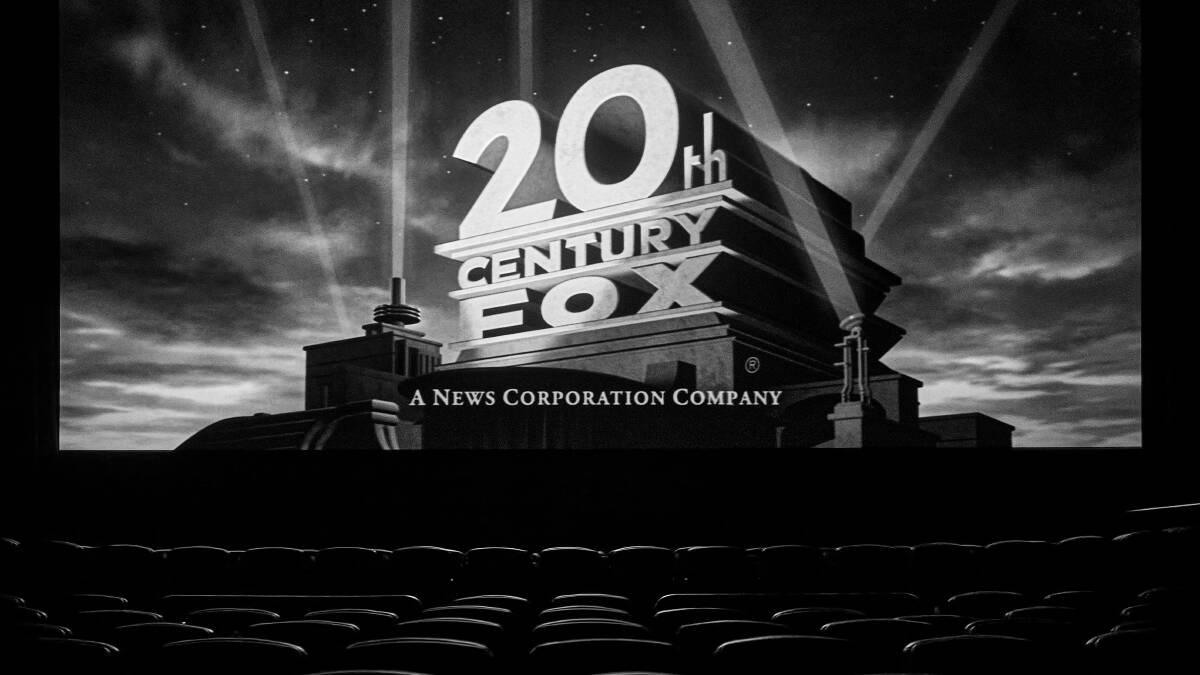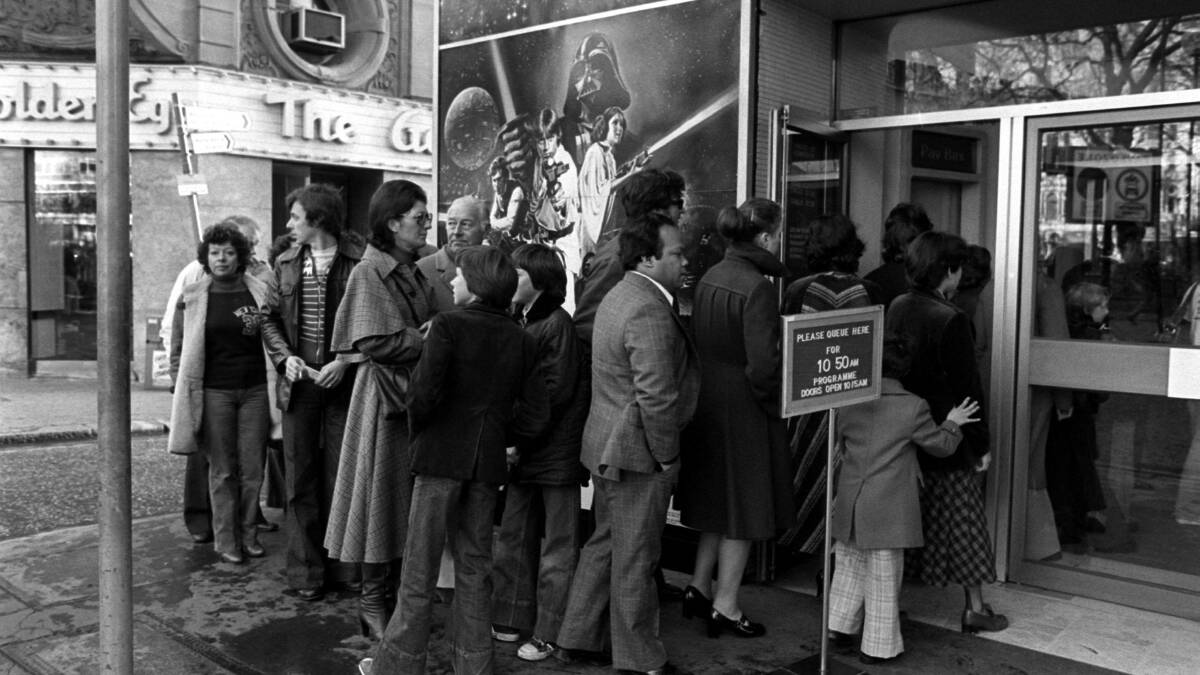
I left the screening of Star Wars: A New Hope at the National Film and Sound Archive - over 43 years since the film's Australian release, and just my second time at a brick-and-mortar cinema since the pandemic began - feeling strangely awestruck.
Subscribe now for unlimited access.
$0/
(min cost $0)
or signup to continue reading
I'm a fan of Star Wars. I was born in 1977, when George Lucas's space opera first blasted its way across cinema screens. Over the years, my friends and I watched Star Wars repeatedly, as kids on broadcast TV and Betamax, then later, when we could afford our own copies, on higher-resolution DVD and Blu-Ray. Now I tend to stream the movie online when I need a lightsaber fix.
But on Thursday night I got off the couch and joined my fellow Canberrans at the Archive to watch Luke Skywalker, Princess Leia, Han Solo and Chewbacca fight back against the fascist Empire on the big screen. I didn't want to miss my chance to see Star Wars in the old-school fashion, possibly for the last time; cinemas across Australia have struggled to stay profitable while abiding by COVID restrictions, as have many filmmakers.
I was not disappointed. The film took me, once again, on a dramatic ride through a galaxy far, far away, but very differently to when watching at home.
I laughed loudly along with the crowd of 80 or so people as Luke whinged about wanting to go to Tosche Station to pick up some power converters. When Darth Vader, towering over us mere mortals in the audience, used the Force to choke Admiral Motti, it was chilling. TIE fighters had me ducking and weaving in my seat. And I couldn't help bopping my head along to the alien funk of the cantina band, along with few other more earnest fans.
The Archive screening revealed incredibly rich details in the film that have escaped me on smaller screens. I noticed the film's sound design first, which underscored moments of intense physical and emotional weight. Near the film's beginning, the deep booms, clanging metal and whine of welding created a terrible dread and anxiety before the stormtroopers burst into the hallway of their prey's ship. The patter and crackle of rocks falling in the otherwise quiet desert canyons of Tatooine subtly reinforced the world's isolation. I felt Luke's loneliness in a vast universe.
Then there were the striking visuals. Of course, the film is known for so many iconic images, but what drew me in this time were shots that conveyed the struggles of its heroes. In particular, the camera lingered on the remains of Luke's aunty and uncle, murdered by stormtroopers. Their bloodied and blackened bones have never felt so haunting to me before, so powerful in driving home Luke's loss, and setting up why he goes on to train as a Jedi with Obi-Wan Kenobi, and the strong friendships he forms with Han, Chewy and Leia.
At the film's end, the lights turned on in that grandiose art deco theatre, and my friends and I walked down its stairs to the exit. I turned to look back at the massive screen that had gone dim, then the rows of seats being emptied, and couldn't help but feel reverent. Star Wars was over, yet the film's moments of emotional power, shared by an audience of 80, and the dedication and love of so many theatre workers and fans in celebrating a classic film during the time of a deadly virus, stuck with me.

I'm not the only one who has a renewed sense of admiration for the shared experience of the theatre during the pandemic era. Cate Shortland, director of the upcoming Marvel film Black Widow, and who grew up in Canberra, has described that experience as one of escape as well as emotion, where new possibilities are imagined.
"Watching a film in the cinema is all about a shared experience, but also it's just about sinking into the darkness and totally entering a new world and the luxury of that when the world outside is chaotic; you just go into another person's mind and way of seeing the world," she told the British Film Institute.
Similarly, Richard Linklater, who directed the science-fiction thriller A Scanner Darkly, has reflected on how important the communal, in-person experience of film remains, even when small-screen viewing options are numerous. Linklater suggests theatres are important for what we remember, and what will survive:
"I always tell people it's about life experiences ... you have those great experiences with movies, and it's the place, it's the community around you, or even if it was a sparsely attended movie, it's remembering the whole experience of watching it in a theatre."
READ MORE:
Like Linklater, I still remember seeing my very first film at the cinema. I was eight when my father took me to see Return of the Jedi at a tiny suburban theatre, back when movie tickets were bought with notes and coins, and before multiplex cinemas. I don't believe Luke's angst and persistence in trying to win back Darth Vader to the light side really registered with me, but I was hooked on the thrill of the action, and watching it with my dad. That pleasure has helped shape my relationships with loved ones, the stories I write, and my passion for so many other films. Watching films with others at the cinema is part of who I am.
Sadly, the illness and suffering from the pandemic continues here and across the world, hurting filmmakers and fans. The news of another virus outbreak in Victoria, where my family live, means I don't know when I will be able to see them again, let alone go out to a movie with them.
For the moment, as long as it is safe, I will keep visiting the Archive and other cinemas with my friends. The rich tradition of watching Star Wars and other films together, offline as well as online, will help keep me going during these difficult times. It is a cinematic tradition I hope never dies.
- Ben O'Mara is a writer based in Canberra and Melbourne.

